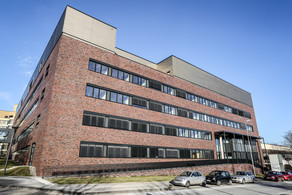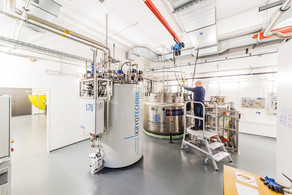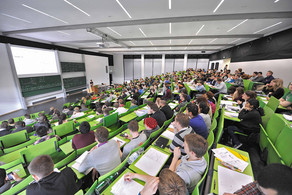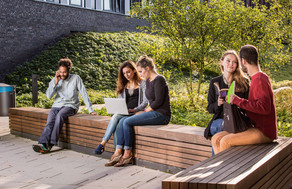Laboratory Courses and Clinical Internships
The laboratory courses are a central element of the physics and medical physics courses. In the basic laboratory courses, students learn to understand physical relationships and to verify theoretical concepts in experiments. They will get to know basic experimental techniques and measurement procedures, as well as simple methods of data analysis and how to deal with measurement uncertainties. In addition, the students learn to formulate a scientific work process in language, to document it and to discuss the results critically. In the advanced laboratory courses, the techniques and knowledge learned in the basic laboratory courses are deepened in further experiments in nuclear, particle and solid-state physics.
The courses take place in small groups in the designated rooms of the Department of Physics. Information on the courses can be found in the module handbook Bachelor Physics or in the module handbook Bachelor Medical Physics and the corresponding moodle rooms.
The Bachelor's degree in Medical Physics provides for a supplementary clinical internship, which takes place on the premises of clinics in and around Dortmund. There, the students learn the use of physical devices and procedures in patient care, the structure of a hospital and the cooperation between medical and non-medical personnel. Further information on the clinical internship can be found in the module handbook Bachelor Medical Physics.
The advanced laboratory courses are part of the curriculum in the Master’s Physics course. Optionally, further physical specialization laboratory courses can be chosen, e. g. in the field of particle or solid state physics or electronics. Further information on the master's laboratory courses can be found in the Master's Physics module handbook and the corresponding moodle rooms.








